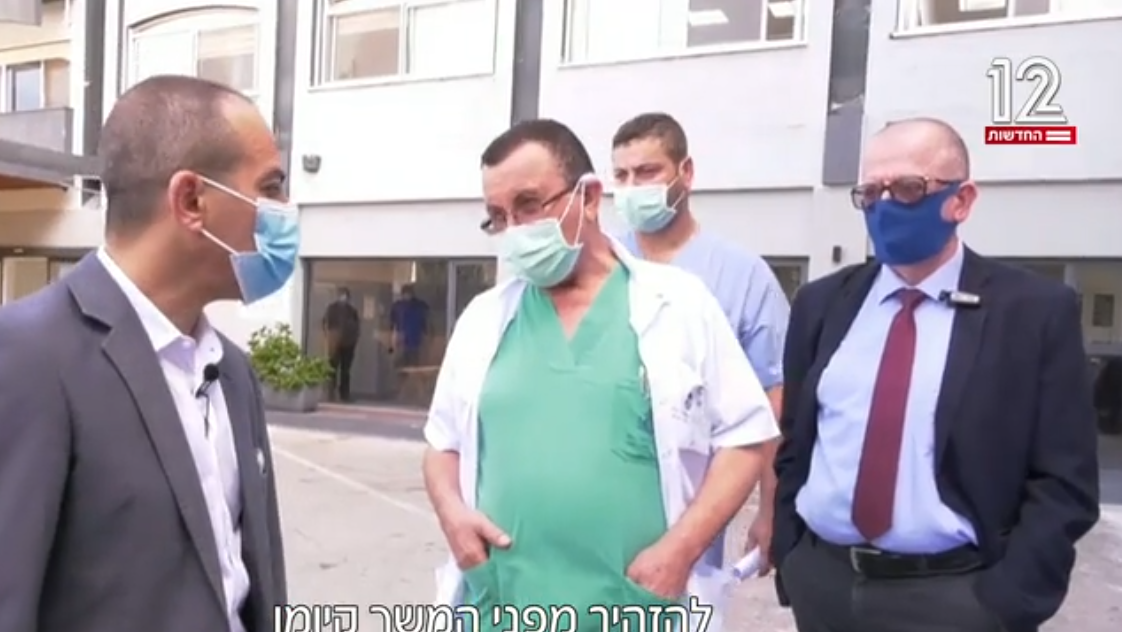Israeli-Arabs Confront Runaway Coronavirus Outbreak
Mayor whose town is on list for lockdown says he will comply – although he would have preferred to be given a chance to solve things locally
Israeli-Arab communities are among the leading hotspots for the resurgence of coronavirus infections in Israel, which for the week ending September 2 led the world in new cases per capita.
The Israeli cabinet was to vote on Sunday in favor of a full lockdown on some 30 locales at the behest of the Health Ministry, which says the move is necessary to contain the virus’s rapid spread in these “red zones.”
The vast majority of the locales are in the Arab sector. The rest are inhabited primarily by ultra-Orthodox Jews, whose mayors wrote a scathing-enough letter to Prime Minister Binyamin Netanyahu to make him cancel the cabinet session – clearly out of concern for the stability of his coalition, which relies heavily on the support of ultra-Orthodox lawmakers.
In the Arab communities, weddings and other social gatherings are considered the primary reason for the high levels of infection.
“It’s summertime and it’s the wedding season,” Adel Badir, mayor of Kafr Qasim, one of the Arab towns on closure the list, tells The Media Line. “Hundreds of people are gathering in small areas… spreading the virus.”
It’s summertime and it’s the wedding season
Badir says that although the ministry classified his town a red zone, talk of a lockdown caught him by surprise.
“We would have liked for them to give us more time to deal with things,” he explains, adding that he had lately imposed several measures designed to slow the local infection rate.
“I hope that in the next two weeks we will be able to reduce the number of infections so we can exit our designation as a ‘red’ town and return to [being a] ‘green’ town,” he says.
Badir notes that while the new coronavirus surge in Arab communities led the government to order the closure of event halls, people began to hold their weddings and other social gatherings in large yards and even the streets. He adds that the relatively few cases reported in Arab communities at the beginning of the pandemic apparently made people “careless,” with them now failing to wear masks and maintain social distancingץ
“People believed that the disease was not to be feared,” he states.
He adds that in Kafr Qasim, four people have died.
“This is a very dangerous virus and it shouldn’t be underestimated,” he said.
Israel’s so-called coronavirus czar, Prof. Ronni Gamzu, has been working closely with community leaders. Badir says Gamzu’s team has been cooperating with officials in Kafr Qasem “and we have worked on a plan to reduce the number of those people affected.”
But many within Israel’s Arab communities are critical of the government’s pandemic policies.
Ahmad Kashkosh, from the town of Qalansawa, believes that authorities ignored all signs pointing to the current crisis.
“Did they just now remember us? We pleaded with them to increase money for the municipalities and add more police units to make sure people were adhering to the rules,” he tells The Media Line.
Did they just now remember us? We pleaded with them to increase money for the municipalities and add more police units to make sure people were adhering to the rules
But Faleh Habib, a political analyst who lives in neighboring Taybeh, disagrees.
“Responsibility is collective and everyone should help contain the pandemic,” he relates to The Media Line. “One party cannot be blamed at the expense of another. Everyone is responsible.”
Yet Habib feels the government has indeed made several mistakes.
“It took a long time to appoint Gamzu. Meanwhile, the situation was exacerbated and the epidemic spread,” he notes, calling for better avenues of communication between the government and local authorities, as well as private citizens.
He, too, points to the well-attended nuptials in Arab cities and towns.
“We see that the majority of infections in our society originate from weddings. [They] must be stopped immediately or [the families should] at least adhere to the Health Ministry’s directives” on social distancing, masking and limits on participants, he states.
Habib also believes that Gamzu’s plan to curtail or at least control the spread of coronavirus is flawed.
“What worries me is Gamzu’s determination to increase the number of tests. This may make people reluctant to take [them, hoping to] keep the numbers down… and stay off the red list.”
What worries me is Gamzu’s determination to increase the number of tests. This may make people reluctant to take [them, hoping to] keep the numbers down… and stay off the red list
Eyad Ighbariyeh, a building contractor from Umm al-Fahem, tells The Media Line that he, personally, will not comply with any closures.
“I want to make sure that my family has food. How can I do that if I don’t work?” he says.
“Closing stores is a failed decision,” he goes on. “The police should force people to commit to mask-wearing and social distancing, not to shutting down the country.”
Badir says he will “cooperate” although he fears a lockdown will be economically crippling.
“The closure will greatly harm the economy of Kafr Qasim, and the closure of schools will have negative consequences for our students. But in the end, the health of our citizens is more precious and more important than any other consideration,” he states.
“It seems this pandemic will continue to be with us,” he commiserates, “and we must learn to live with it for a long time.”
It seems this pandemic will continue to be with us and we must learn to live with it for a long time


